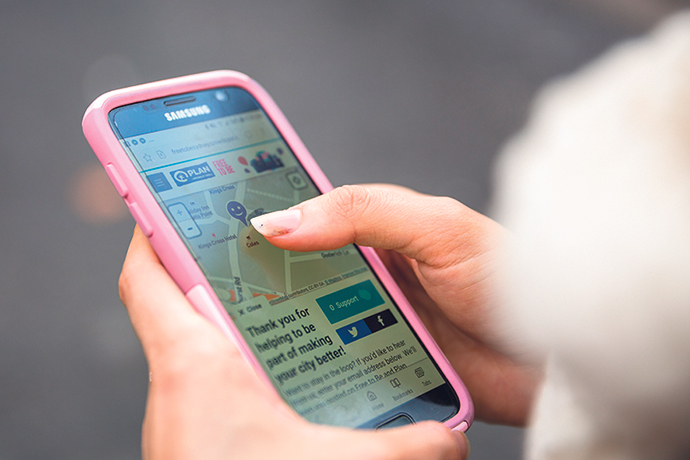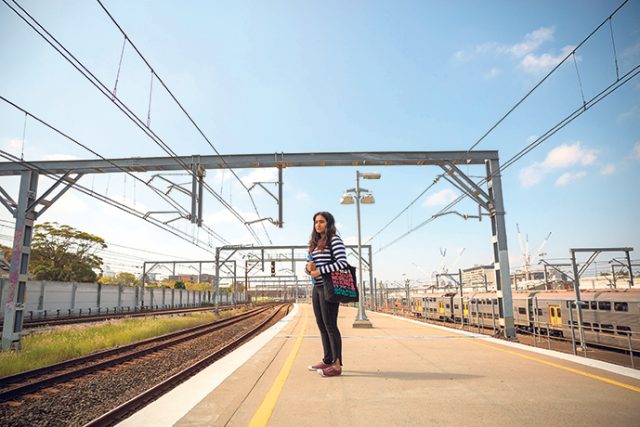Waiting at a train station, walking a dog or waiting for friends – these simple tasks are done every day by people all over Sydney.
But for some women, safety is a big issue when completing these activities. It is for this reason that a new interactive map, Free to Be, has been created, giving women the power to fight back against feeling afraid, intimated or unempowered in their everyday lives.
Aimed at women aged 15 to 25, the map allows users to anonymously drop ‘bad’ pins anywhere on the map where they have been harassed or felt unsafe and ‘good’ pins on places they feel safe.
21-year-old Free to Be ambassador Kripa Krithivasan has experienced street harassment and is encouraging others in the same boat to speak up.
“When you look at the statistics out there and look at the pins already on the map, so many women have gone through harassment and I think it’s important for something to be done about that,” Ms Krithivasan said.
After a successful run in Melbourne, the initiative by NGO Plan International Australia in partnership with Crowdspot and Monash University, has already seen over 1000 pins dropped in Sydney, overtaking the total number of pins dropped in Melbourne.
With Penrith one of the map’s ‘hub spots’, a total of 10 pins have been dropped within the LGA. Six of those pins are ‘bad’, with two women marking Kingswood Station as an unsafe place.
It’s something that doesn’t come as a surprise to Ms Krithivasan, after a survey conducted by Plan International Australia showed that 90 per cent of women in Sydney felt unsafe in their city after dark, with almost half revealing they felt uncomfortable taking public transport during the day.

And while everyone should have the right to feel safe in their community, Ms Krithivasan said it was these overwhelming statistics that reinforced the fact change was needed.
“I understand some people taking it as ‘oh but men should feel safe as well’ but the whole idea is that the statistics overwhelmingly show that women are so affected by this and that it’s a pervasive thing in our everyday lives,” she said.
After the data collecting map closes on May 28, the findings will be taken to local councils and government, where it is hoped that changes will be made in areas identified as unsafe – even if it’s as simple as installing a street light.
“The project is an opportunity to talk to decision makers, which is something that young girls don’t really have access to,” Ms Krithivasan said.
“We can make changes through activism, startups and our social media accounts, but to have the opportunity to talk to a decision maker is something that sets this project apart from others.
“Hopefully something good will come out of it because if not then that’s just turning a blind eye to a problem that is obviously there.”
For more information on the initiative or to drop a pin, visit sydney.planfreetobe.org.
Lauren Suttie
Lauren Suttie is the Weekender's General & Community News journalist.

